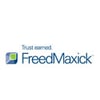
Courtney Angora & Ryan Burnside
Cash posting procedures can ensure stronger cash flow for healthcare organizations
‘Cash Posting’ in medical billing is the process of recording payments received from patients, insurance companies, and other entities into the healthcare provider's billing system. It involves applying the payments to the correct patient accounts and ensuring that the financial records are accurate and up-to-date, as well as providing an accurate snapshot of the practice’s current cash flow.
Electronic Documents
The Centers for Medicare & Medicaid Services define Electronic Remittance Advice (ERA) as “a data file that you receive from an insurance payer that provides an explanation about a claim payment.” Practices utilize ERAs from insurance companies to automate the posting process. This reduces manual data entry and errors. An ERA explains how a health plan has adjusted claim charges based on factors like:
- Contract agreements
- Secondary payers
- Benefit coverage
- Expected copays and co-insurance
An Electronic Funds Transfer, or EFT, is the electronic message used by health plans to order a financial institution to electronically transfer funds to a provider’s account to pay for health care services (CMS). EFT information includes:
- Amount being paid
- Name and identification of the payer and payee
- Bank accounts of the payer and payee
- Routing numbers
- Date of payment
Posting Payment Remits
It is important to post payment remittances, even those showing a payment of $0.
1. Posting of $0 Pay Remits: This refers to recording remittance advice documents from insurance companies or payers that show no payment (i.e., $0) for a particular claim.
2. Denied Claims: These $0 pay remits often include information about claims that have been denied by the insurance company. Denied claims need to be addressed by the medical provider, which might involve correcting and resubmitting the claim or appealing the denial.
3. Balances to be Transferred: The remittance might also indicate amounts that the insurance company has determined are the patient's responsibility. This could be due to deductibles, copayments, coinsurance, or services not covered by the insurance plan.
By posting these $0 remits, the provider's billing system is updated with the necessary information to follow up on denied claims and to transfer any outstanding balances to the patient's account, ensuring accurate billing and collections.
The Case for Cash Posting Automation
Healthcare providers lose approximately $125 billion each year due to poor internal billing practices (Equifax). It is estimated that 80% of medical bills contain errors (Beckers). These inaccuracies cost the healthcare industry over a $100 billion dollars per year. Manual entry is responsible for incorrect account postings, miskeyed amounts, and omissions. Seeking and fixing errors can be very time consuming and labor intensive, slowing down the overall billing cycle.
Practices not already doing so should consider automating to ensure speed, accuracy, scalability to handle growing transaction volumes and diverse payment methods, and improving customer experience. Software is available that integrates with practice management systems and Electronic Health Records (EHR) to streamline workflows to manage denials, partial payments, and overpayments efficiently.
Our Healthcare Consulting and Revenue Cycle Management Expertise
The dedicated healthcare accounting professionals at Freed Maxick work with organizations like yours to create efficiencies for smoother operations, revenue cycle management and revenue enhancement. We currently serve more than 250 healthcare providers, including over 30 hospitals and health systems, and more than 200 other post/sub-acute providers across the Northeast.
Schedule a complimentary discussion with a member of our Healthcare Consulting Practice to talk about ways to enhance your processes with cash posting best practices. Please contact Courtney Angora, Courtney.Angora@FreedMaxick.com or 585-802-7709 or Ryan Burnside, Ryan.Burnside@FreedMaxick.com or 716-362-6204.
